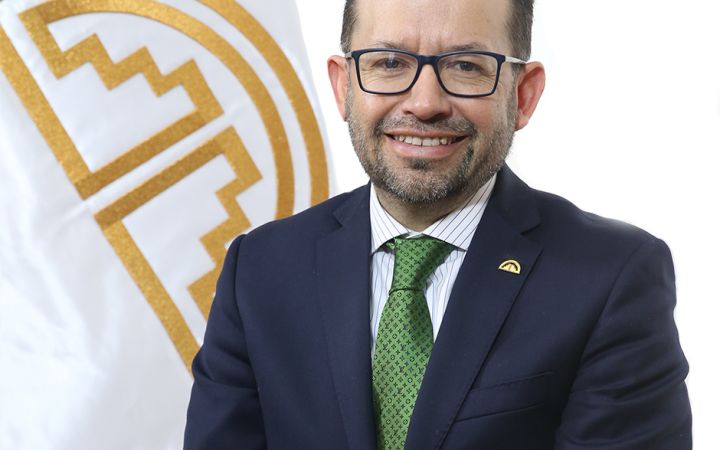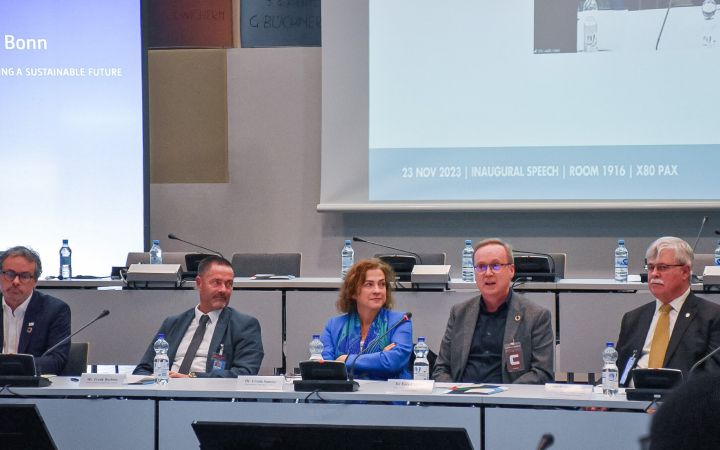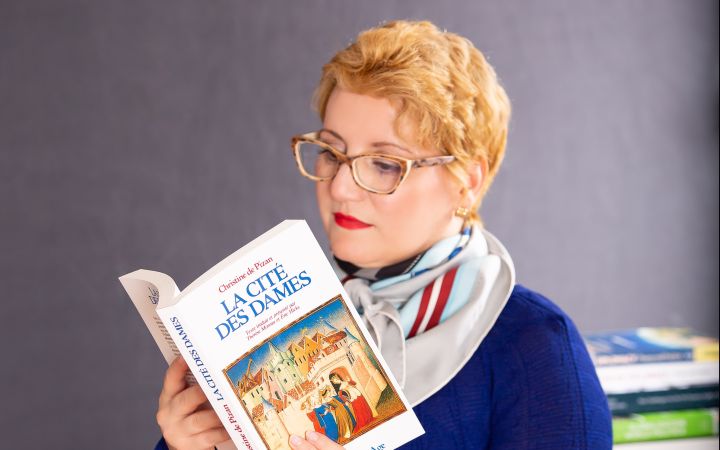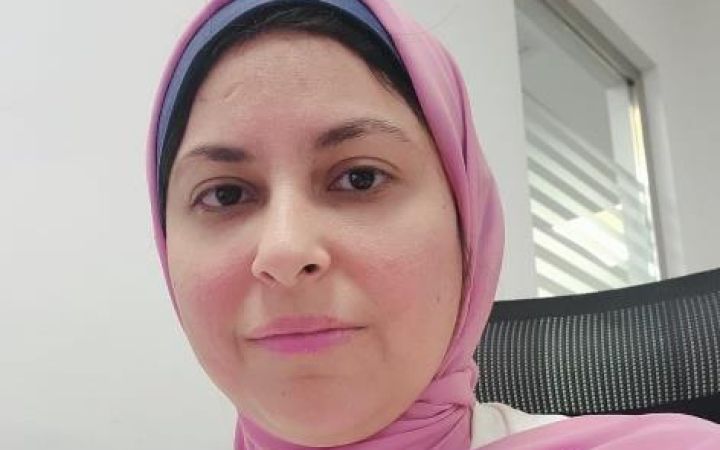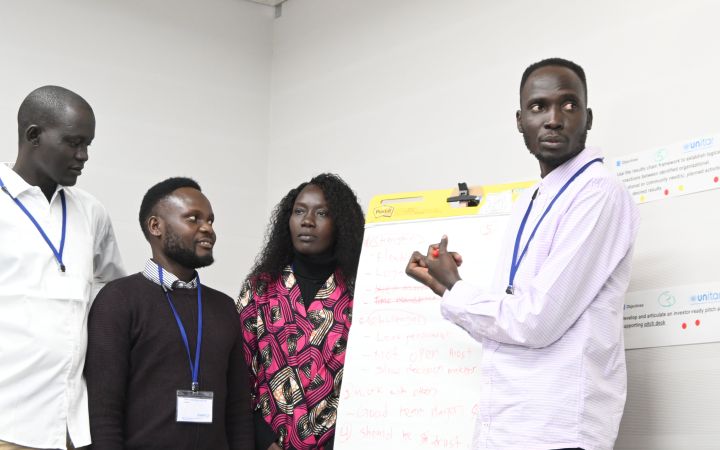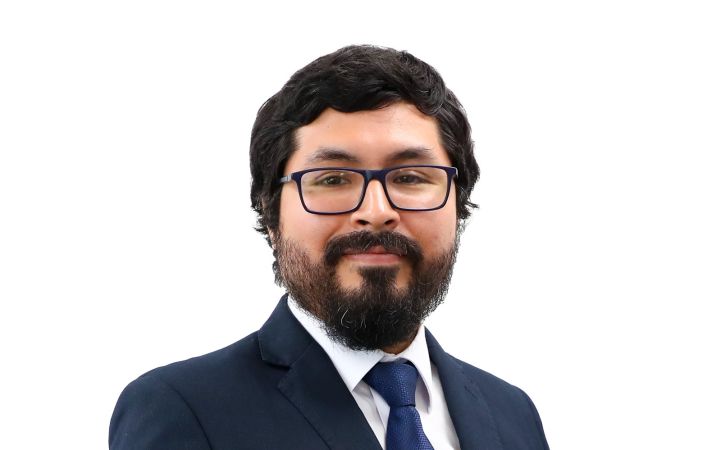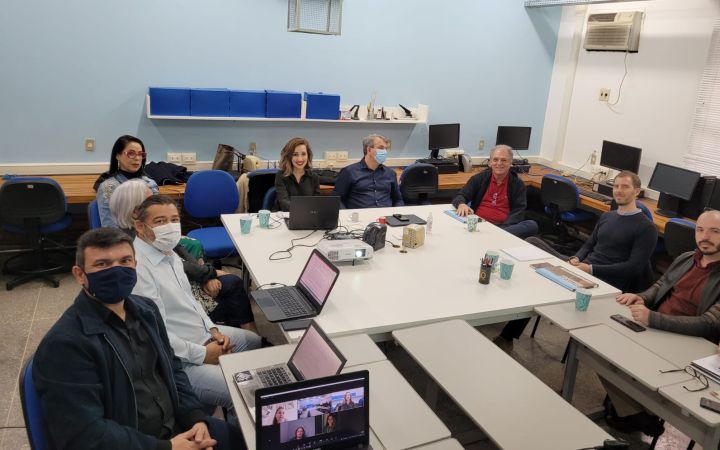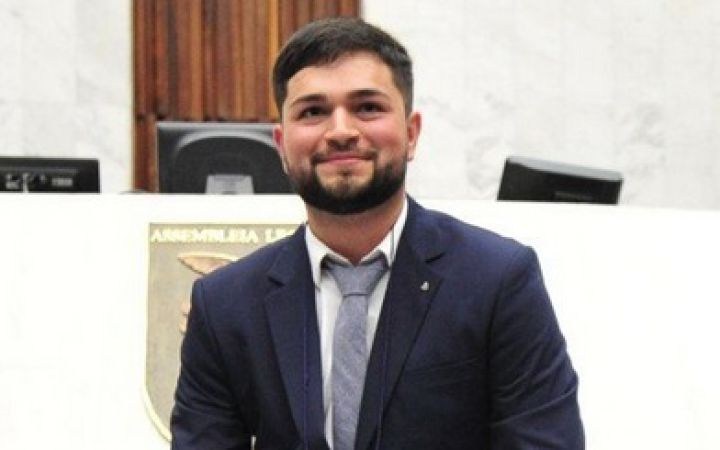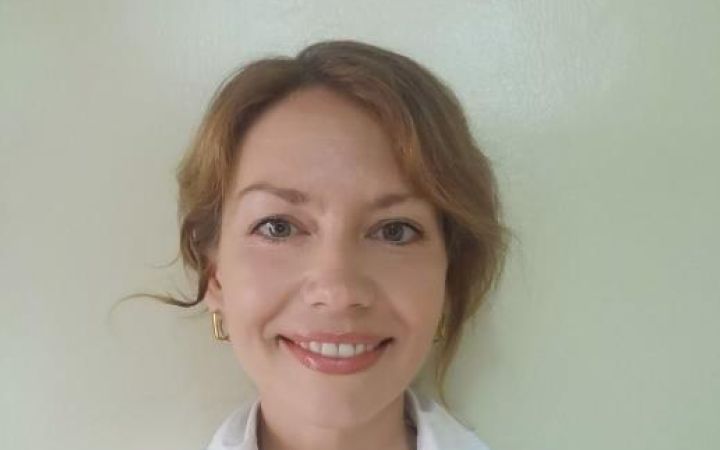Displaying 91 - 100 of 291
The commitment of the General Secretariat of the Andean Community (SGCAN in Spanish) to the well-being of its 115 million inhabitants is more than just a mission - it's a driving force for positive change.
Dr Eoin Langan’s background is in accounting, finance and IT consulting, prior to transitioning to a career in Higher Education. He joined TU Dublin in 2019 as Head of School Accounting and Finance, City Campus, and became Dean of the faculty of Business, in September 2021. He brings extensive executive management experience in both industry and academia to the role of Dean. He encourages an inclusive approach with an open leadership style that promotes collaboration, incorporating opportunities for staff development with an emphasis on collegiality and partnership. Dr Eoin has a strong interest in innovation, technology, entrepreneurship and sustainability within Higher Education. His research interests include transition into Higher Education and innovation in Teaching, Learning, Assessment and Feedback. He is a former chair of the Irish Accounting and Finance Association (IAFA). Aligned with his interest on sustainability, Dr. Eoin was a keynote speaker in the International Research Climate Security Conference.
Solomon is pursuing a Bachelor’s in Psychology at the University of Ibadan, Nigeria, and nurturing his tech savviness by exploring different projects outside his field of studies. He has always been interested in learning more about the interaction between humans and the environment, including how humans experience climate change. This made him keen to join the Donate Water team during the GEAR Cycle II of the Crowd4SDG project that focused on Gender Equality (SDG 5) and Climate Change (SDG 13). With support from coaches and the project’s partner organizations, the Donate Water team has moved their project forward to advance information on access to clean water in the South of Nigeria.
Jelena is an adjunct lecturer at John Jay College of Criminal Justice, New York, and a senior consultant on topics related to Women, Peace and Security (WPS). As part of her consultancy services, she acts as an expert for UNITAR’s Global Diplomacy Initiative (GDI). Her relationship with UNITAR started in 1996, when she participated in a UNITAR training as a young diplomat from her home country, Andorra. Her journey through the intricate corridors of global governance and her transformative career pathway paints a vivid picture of resilience, dedication and continuous learning.
Salma, a food scientist, had dedicated over eight years to the role of Product Development Manager in the private sector, until she embarked on a transformative journey with the UN Food and Agriculture Organization (FAO) Regional Office for the Near East and North Africa (NENA) and the World Food Programme (WFP) Regional Bureau in Cairo. Salma holds a Master’s degree in food chemistry and is currently pursuing a PhD. Salma continues to apply the invaluable knowledge gained from the programme to her work, seamlessly weaving together her expertise and the programme's teachings to make a meaningful difference in the lives of those in need.
Kuena James Dak Kuena is a South Sudanese entrepreneur, social worker and ICT specialist who seeks to empower local farmers and advance the agricultural sector by using the power of technology. He is currently ICT and communication assistant for an NGO that promotes youth livelihoods, peace building and education among vulnerable communities and refugees in Uganda and South Sudan. Kuena joined the UNITAR programme Great Ideas Space for South Sudan 2023: Entrepreneurship and Innovation Training for Food Security so he could learn how to operationalize his agritech project.
Paulo Porta, Director of the Pollution and Chemical Substances Control Directorate at the Ministry of Environment, Peru, and his team have played a key role in the formulation of the Ley de Gestión Integral de Sustancias Químicas in Peru, as well as its regulation. His unit deals with two main branches: pollution control and chemicals management. It is in relation to this second area that Paulo has participated in UNITAR training courses and has worked hand in hand with specialists from the Institute.
The agriculture powerhouse state of Mato Grosso in Brazil is not instantly linked to a green economy. But there are people there who want to change this, notably Karyna Rosetti. Karyna is a professor at the Federal University of Mato Grosso (UFMT), who has been working to deliver green economy education to graduate and postgraduate students in the state.
Matheus Falasco, aged 25, is the Director of the Youth Action Hub Curitiba, an initiative of UNCTAD, aimed at empowering young people. Since 2019, he has led efforts to advance the 2030 Agenda, focusing on youth engagement.
Anna Beck found herself navigating a journey from the private sector to the role of project manager within the United Nations peacekeeping mission MONUSCO in 2022. As an associated Disarmament, Demobilization and Reintegration (DDR) officer, her work primarily focuses on Community Violence Reduction (CVR) projects. Despite her large experience in project management, Anna was eager to continue learning on peacekeeping-related issues. The UNITAR training allowed her to fulfil this objective, bringing new weapons and ammunition management (WAM) perspectives into her CVR work.


